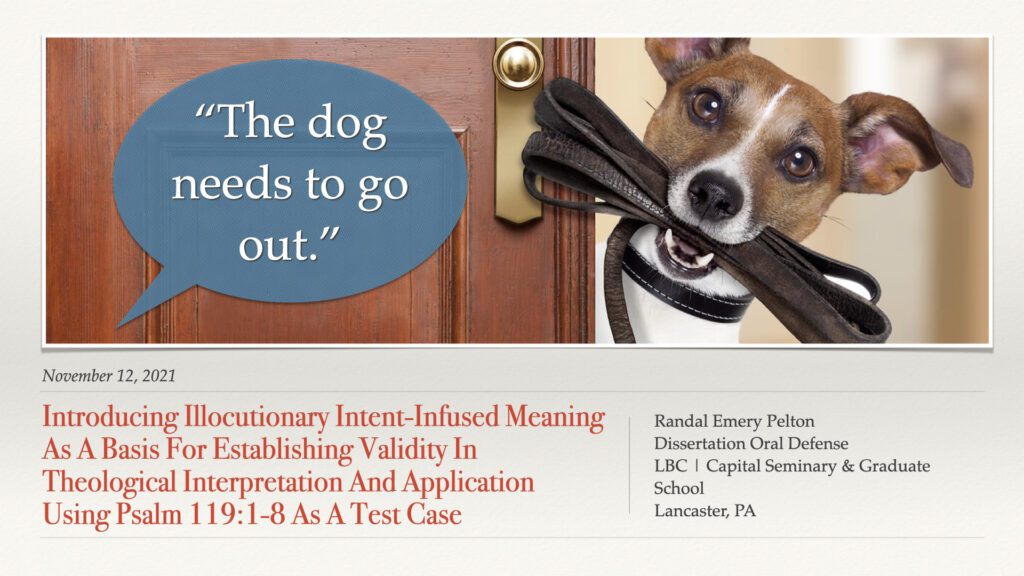After almost a two-year break from preaching through the Psalter, I am back in it. Here is a way for you to discover how the Psalms function for the church. What follows is a summary of illocutionary categories. The term, illocutionary, comes from the world of speech act theory. The categories come from the writings of Austin and Searle. As I result of my recent studies into speech act exegesis, I have added an inferential step (“with the intention of…”) to the categories to show how illocutionary acts do something to the reader.
Here are how the illocutionary categories function in the Psalms:
Assertives = the Psalmist asserts himself by stating something to be true or announcing the current state of affairs with the intention of eliciting faith in the biblical reality and the desire to enjoy or avoid the state depending on its character.
Directives = the Psalmist directs the hearer to do something through a command or instruction with the intention of urging either adherence or avoidance depending on the nature of the command.
Commissives = the Psalmist commits himself to some future action through making a promise or stating that he will do something with the intention of urging readers to follow.
Expressives = the Psalmist expresses himself in the sense of revealing feelings, such as thankfulness or gratitude, or thoughts with the intention of eliciting the same feelings in the reader.
Declarations = the Psalmist declares something and in the act of declaring, that something becomes reality such as a blessing with the intention of the reader experiencing the created condition.
In summary, assertives assert, directives direct, commissives commit, expressives express, and declarations declare.
When you work in the Psalms watch for the Psalmists doing these things.
In the case of Michele stating, “Randal, the dog needs to go out,” what she is doing is really asking me to take the dog out. That’s how illocutionary intent works.
As you allow these categories to work for you, your listeners will hear how the Psalms work and our Lord will receive glory in the church and in Christ Jesus (Ephesians 3:21).
Randal











